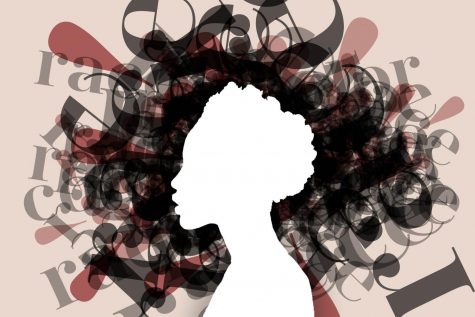Racism still impacts students in 2020
February 26, 2020
It’s a cold fall night in Washington state and the high school stadium is packed with a large crowd. The night lights turn on and the cheerleaders grab their pom poms to cheer for their star football players. The home team runs onto the field and the crowd goes wild. The opponent team approaches. Suddenly, a large group of people started to yell derogatory and racial terms toward the black players, according to Windy Isaia, a sophomore majoring in communications.

Isaia never experienced anything similar before, though he heard stories about similar instances. Isaia is originally from California, but his family moved to Washington. According to Isaia, racism still occurs even though Washington is a diverse state.
“It’s just not right in general. Like me, I got friends of all colors, all races. No matter if you black, white, orange, yellow, it doesn’t matter to me. As long as you are a good person,” Isaia said. “People just can’t judge people based on their skin color. You don’t know how people grew up.”
CWU Diversity
According to CWU diversity and inclusivity statistics, there has been a seven percentage-point increase in diversity in the last five years. In fall 2019, there were about 11,500 students enrolled at CWU. Of those students, 55.2% identified as European/Middle Eastern/White; 18.1% as Hispanic/Latino; 7.9% as Multiracial; 4.7% as Asian; and 4.2% as African American/Black.
According to a poll conducted by NBC News in 2018, 64% of Americans say racism is still a major concern and issue. According to the same poll 30% of Americans agree racism exists but isn’t an issue.
Jasmin Washington, ASCWU President and senior public health major, thinks back to a time when she faced racism at CWU.
Washington said she had a roommate who seemed genuine and outgoing. But Washington said after the first day of living together, she noticed the roommate and the roommate’s family were making antagonizing comments directed at her.
“Her brother said some pretty messed up things to me,” Washington said.
According to Washington, the roommate’s brother said black people are drug dealers and uneducated.
Washington said she invited her roommate to attend a Black Student Union meeting. According to Washington, her roommate did not like that there was a black student union and didn’t believe racism existed.
According to Washington, she and her roommate got into an argument about racism and slavery. The argument led to both Washington and the roommate meeting with a resident assistant, according to Washington. Washington said both she and her roommate had to attend a conduct meeting where, according to Washington, she was forced to move out.
“That’s when I realized white people do have an advantage and privilege,” Washington said. “I looked like – once again – the bad guy, when I was simply trying to defend the color of my skin.”
Sankeet Katta, clinical physiology major, went to the Watershed Country Music Festival two years ago. According to Katta, an intoxicated person was trying to unload their belongings from a truck. Katta and his friends saw the person struggling and reached out to help.
“When I asked, ‘Do you need help?’ The man replied, ‘Not from you sand monkey’,” Katta said. “First of all, I am not Arab. Second of all, the man decided to curse me when I was trying to help him.”
While Katta said while he could’ve gotten aggressive and physical towards the person, he chose not to.
“Yes, the person was racist and said something hurtful,” Katta said. “But he was lost, and he needed to find his friends. It’s not fair to treat someone differently, because they said something bad.”
CWU Resources
The Diversity and Equity Center (DEC) is an on-campus resource for students.
The DEC’s mission is to cultivate a sense of belonging and community on campus, according to the DEC’s website. Throughout the quarter, the DEC hosts events to coincide with its mission.
Students who face adversity have the ability to fill out a behaviors of concern form.
“The Behavior of Concern report is an online reporting mechanism for all members of the CWU Community through Guardian Conduct,” CWU’s website says. “You can log in with your CWU credentials OR reports can be submitted anonymously by clicking the button below.”
There are seven incident types you can report, one relating to bias-related incidents.
These are incidents that include “hostile or negative behavior, speech, or expression based upon persons’ actual or perceived: color, disability, ethnicity, gender, gender identity and expression, national origin, race, religion, sexual orientation or other protected status.”
Discrimination and racism can be experienced in any environment, whether it’s in the workplace, a college campus, a concert or at the gym.


